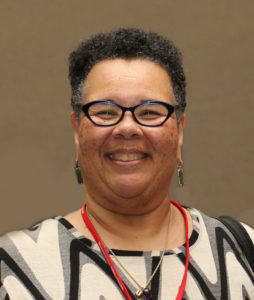
Teaching During Upheaval: You’ve Got This!
We are in the midst of unprecedented social upheaval. Many colleagues are being asked to migrate their teaching formats to online learning and curtail their interactions with learners to the digital spaces. Even so, I believe our roles as teachers can assist our students as we move through this crisis, together.
Teaching during crisis can seem as if we are taxed beyond our capabilities, pushed beyond our job descriptions, and stretched beyond our capacities. According to the scientists and medical professionals, this particular crisis will last longer than a few days. The pandemic which grips our nation, and the world, will likely have a duration of months. We do not know how many months.
We are likely participating in a paradigm shift in higher education. Before our very eyes, this crisis is likely causing long-term societal shifting. The abrupt behavioral shifts of the society are and will continue to affect the patterns and habits in our schools and classrooms. Practices of social distancing will likely linger in our society after the threat of the pandemic has been eliminated. The advantages of online learning will become more utilized as the threat of human proximity lingers in our shared memory.
In the midst of so much abrupt and radical change - still yourself. Ask yourself not to panic, but to find balance and calm.
The health, healing and wholeness of our schools and communities will require all of us to be attentive to this situation. Resist the impulse for “business as usual.” In these emotionally charged times, teachers are looked to as role models, as responsible people who set the tone and tenor in our classrooms of students as well as in our own families and communities. We are called to be a non-anxious presence even when we are struggling in anxious times and with our own personal anxieties.
Faculties are being asked to immediately shift from a face-to-face format of course design to online learning. Teachers are having to quickly redesign 1,2,3, and in some cases, 4 courses to an online format in a matter of days. Migrating courses from face-to-face formats to online is not impossible, but it takes thought and preparation. Returning to the basics of your course seems key in this unusual/unprecedented situation.
Format affects teaching, but it does not have to diminish or weaken your standards. Resist surrendering to your own frustration. Relax your typical standards for what “has to be taught.” A key is to keep your students engaged and keep your learning aim and goals as your guide – there are many, many ways to get to any one of those goals.
What do you do? Do enough and do it well enough – it will not be how you planned, but it will be good enough. Do new and needed activities with your students. Remember the learning activities maybe new to you, but likely not new to your students. Do differently than you planned. Migrating from one format to another is no small task. Lean into the difference and know that teaching differently does not mean that your teaching will become inferior or bad. Change does not have to compromise quality.
Remind yourself of the metaphor you employ when you think of yourself as a good teacher – in the best of times. Typical metaphors or similes for the good teacher are: gardener, light bearer, guide, architect, chef, builder, dancer. The list could go on. Each of these metaphors has in its wider narrative and iconographic knowledge the role of teacher in a crisis. For example, the gardener knows ways to combat drought or flood; the light bearer knows ways to keep the wicks trimmed and burning; the guide knows alternative routes should one path be blocked or destroyed; the chef knows how to save a ruined dish; the builder knows how to correct architectural errors; the dancer knows how not to get caught unaware when the tempo of the music suddenly changes. In this moment of unimaginable circumstance, use your imagination to encourage yourself for the ways you need to adapt your teaching and teaching persona.
Refrain from allowing your classroom time (online or face-to-face) to dissolve into conversation exclusively about the health crisis. Continue to teach your course, even in its modified and adapted forms. Students are still enrolled in degree programs and still seeking graduation. Stay focused upon your course topics. It is likely that concentrating upon something other than the crisis will be refreshing to you and your students.
Consider that this is also a time of opportunity, adventure, and new learning. The foil to crisis is creativity. Creativity is the tool of innovation and invention. Let go of that which would have you stay mired in established ways and current semester plans. Allow yourself to think new thoughts about your own old, rehearsed modes of teaching. Let the tropes go! Suspend judgement about the fictitious standard of teaching which no longer applies in this peculiar moment and let yourself be creative. Finish the semester strong by finding ways of engaging with your students on the course themes – it could be that straight forward!
In this moment of social distancing, hand washing, quarantine, suspicion, and fear continue to take notice of your students. Inherently, teaching is a communal act. Even in online classrooms, pedagogical intimacy can encourage, strengthen, and hearten students. Students depend upon our words of assurance, our gestures of care, our attitudes of warmth and belonging. Be empathic with your students, remembering that they too are in crisis.
The Wabash Center has provided a dedicated page for online teaching - https://www.wabashcenter.wabash.edu/resources/teaching-online/.
We have also published podcasts of many interviews with colleagues who are well versed in online learning https://www.wabashcenter.wabash.edu/resources/videos/.
Leave a Reply